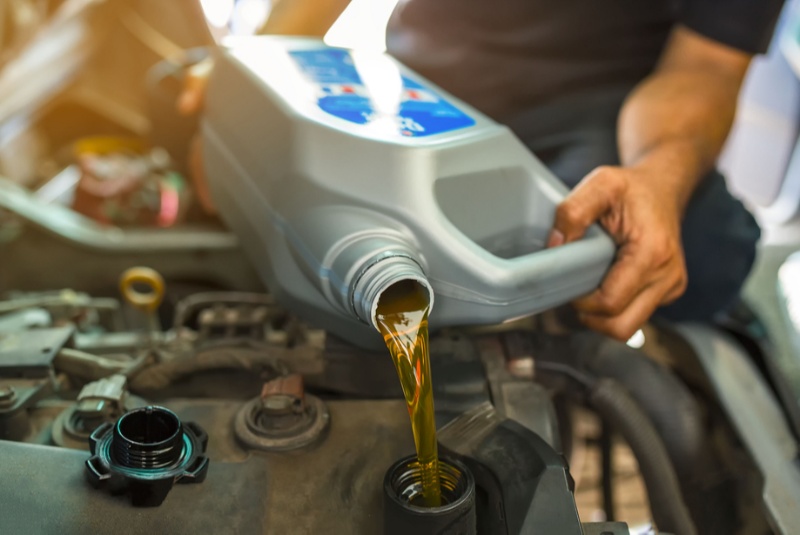Food is one of the biggest expenses on any camping trip—even though cooking outdoors seems cheaper than eating out. But once you add snacks, fuel, cooler supplies, ice, convenience foods, and last-minute grocery stops, the cost can climb quickly. The good news? With smart planning, simple ingredients, and clever cooking methods, you can feed yourself or your whole group well without overspending.
Camping meals don’t have to be complicated or expensive to be delicious. The trick is knowing what to bring, how to store it, and how to cook efficiently so you avoid waste, save time, and keep your budget under control. Whether you’re camping for a weekend or a longer getaway, these strategies will help you cut food and cooking costs while making your trip easier and more enjoyable.
Here’s how to plan, pack, prepare, and cook budget-friendly camping meals from start to finish.
Plan Your Meals Ahead of Time
The number one rule of saving money on camping food is simple: don’t wing it. Planning your meals ahead of time prevents impulse purchases, unnecessary ingredients, and food waste.
A good meal plan includes:
-
Breakfasts that are filling but simple
-
Easy no-mess lunches
-
Dinners that use overlapping ingredients
-
Snacks that keep you full without costing much
-
Drinks that don’t require constant cooler space
Plan meals around a few versatile staples like rice, pasta, tortillas, eggs, potatoes, canned beans, and hot dogs. This reduces the need to bring specialty items that cost more and take up space.
Keep Your Food List Short and Use Multi-Purpose Ingredients
You don’t need a huge grocery haul. In fact, the fewer ingredients you bring, the more affordable your meals will be. Choose items that can be used in multiple dishes.
For example:
-
Tortillas work for wraps, breakfast burritos, quesadillas, and snack roll-ups.
-
Potatoes can become breakfast hash, baked potatoes, or foil-pack dinners.
-
Canned beans are great in chili, tacos, salads, and side dishes.
-
Oatmeal doubles as breakfast and a snack base.
-
Eggs can be used for breakfast, lunch, or dinner.
Multi-purpose ingredients reduce cost, waste, and packing bulk.
Prep Ingredients at Home to Save Time and Money
Food prep at home saves fuel, reduces cleanup, and eliminates the need for expensive pre-cut or pre-made camping meals.
Prepare at home by:
-
Washing and chopping vegetables
-
Portioning meat into freezer bags
-
Cooking some ingredients halfway (like rice or potatoes)
-
Making sandwich or wrap fillings
-
Pre-mixing spices in small containers
-
Precooking pasta or hard-boiled eggs
Prepping ahead also reduces the temptation to buy pricey convenience items at stores near campgrounds.
Choose Foods That Don’t Require Constant Cooling
Ice is one of the hidden costs of camping. Buying a bag every day or two adds up quickly. To save money, pack more foods that don’t require constant refrigeration.
Shelf-stable and cooler-friendly options include:
-
Canned vegetables and beans
-
Pasta
-
Instant rice
-
Bread and tortillas
-
Peanut butter and jam
-
Potatoes and onions
-
Carrots and cabbage
-
Oatmeal packets
-
Canned tuna or chicken
-
Dry seasoning mixes
Save the cooler for essentials like eggs, cheese, milk, and meats.
Freeze What You Can to Save Ice and Money
Before leaving home, freeze items such as meats, stews, soups, and water bottles. Frozen items serve as extra ice packs, cool your food for longer, and reduce the need to buy ice repeatedly.
Freeze:
-
Water jugs
-
Breakfast sandwiches
-
Meat
-
Pre-made sauces or soups
-
Juice cartons for the first day
This simple step can save several dollars throughout your trip.
Cook Over the Fire to Save Fuel
Fuel canisters and charcoal can add significant expense. Cooking over the campfire—with foil packets, cast-iron pans, or skewers—is one of the best ways to cut cooking costs.
Cheap and simple campfire meals include:
-
Foil-pack veggies and potatoes
-
Hot dogs or sausages
-
Grilled vegetables
-
Campfire quesadillas
-
Toasted sandwiches
-
Pancakes on a cast-iron pan
Just remember to check fire restrictions and keep your fuel stove as a backup.
Avoid Buying “Camping Food” Marketing Gimmicks
Many stores sell expensive freeze-dried meals, dehydrated snacks, or “camping gourmet” kits. These are convenient—but rarely budget-friendly.
Save money by sticking to:
-
Regular grocery store items
-
Cheap staples like pasta, rice, beans, eggs, and potatoes
-
DIY snacks like nuts, fruit, or homemade granola
-
Simple one-pot meals instead of packaged kits
Your wallet—and your stomach—will thank you.
Bring Reusable Food Containers and Stretch Leftovers Further
Proper food storage prevents waste and helps meals last longer. Bring a few reusable containers to:
-
Store leftovers
-
Keep snacks organized
-
Keep animals away
-
Transport pre-prepped meals
-
Pack lunch for hikes
Stretching leftovers into new meals is an easy way to keep costs low. For example, leftover chili becomes chili dogs; leftover eggs and veggies become breakfast burritos.
Cook Mostly One-Pot and No-Waste Meals
The simpler the meal, the cheaper it usually is. One-pot cooking also reduces cleanup time and fuel usage.
Budget-friendly one-pot meals include:
-
Pasta with sauce and canned veggies
-
Rice with sausage and peppers
-
Oatmeal with fruit
-
Campfire stew with beans and potatoes
-
Noodle bowls with veggies and broth
No-waste meals ensure every ingredient serves a purpose and nothing gets thrown away.
Use Seasonings, Oils, and Sauces Wisely
You don’t need to pack your entire kitchen. A few well-chosen seasonings can elevate simple meals while keeping cost and weight down.
Good budget-friendly essentials:
-
Salt and pepper
-
Garlic powder
-
Chili powder
-
Mixed seasoning blends
-
Small bottle of oil
-
Small jar of salsa or sauce
These transform simple meals into something delicious without extra cost.
Keep Snacks Simple and Inexpensive
Snack costs add up especially fast, so avoid pre-packaged trail snacks with premium pricing. Stick with affordable options like:
-
Popcorn
-
Apples and bananas
-
Peanut butter sandwiches
-
Homemade trail mix
-
Cheese sticks
-
Crackers
-
Dried fruit bought in bulk
Packing your own snacks prevents overpriced purchases near your campsite.
Skip the Expensive Campsite Store
Campground stores are convenient but overpriced. Avoid buying:
-
Ice
-
Firewood
-
Snacks
-
Water
-
Basic spices
-
Single-use items
Buy everything you need before leaving home or from a regular grocery store nearby—not the campground.
Share Meals and Split Costs for Group Trips
If you’re camping with friends or family, divide responsibilities to save everyone money. You can:
-
Rotate meal duties
-
Split food costs evenly
-
Share bulk ingredients
-
Assign each person to bring one part of the meal
Group cooking is not only more affordable, but also more fun.
Reducing food and cooking costs while camping doesn’t require sacrificing fun, comfort, or flavor. It simply requires planning smart, choosing the right ingredients, and avoiding unnecessary expenses. By prepping ingredients at home, simplifying your meals, cooking over the fire, skipping overpriced convenience foods, storing leftovers wisely, and packing versatile staples, you can enjoy a satisfying and memorable outdoor dining experience—without straining your budget.
With the right approach, your camping meals can be affordable, hearty, and even better than anything you'd buy on the road. Nature does the rest.




